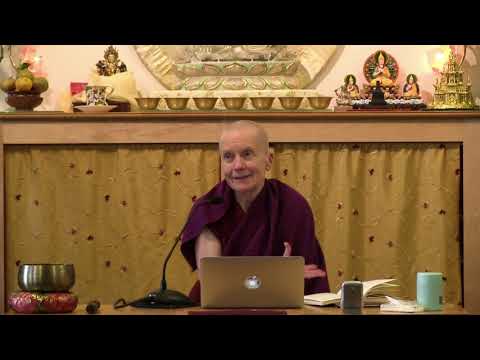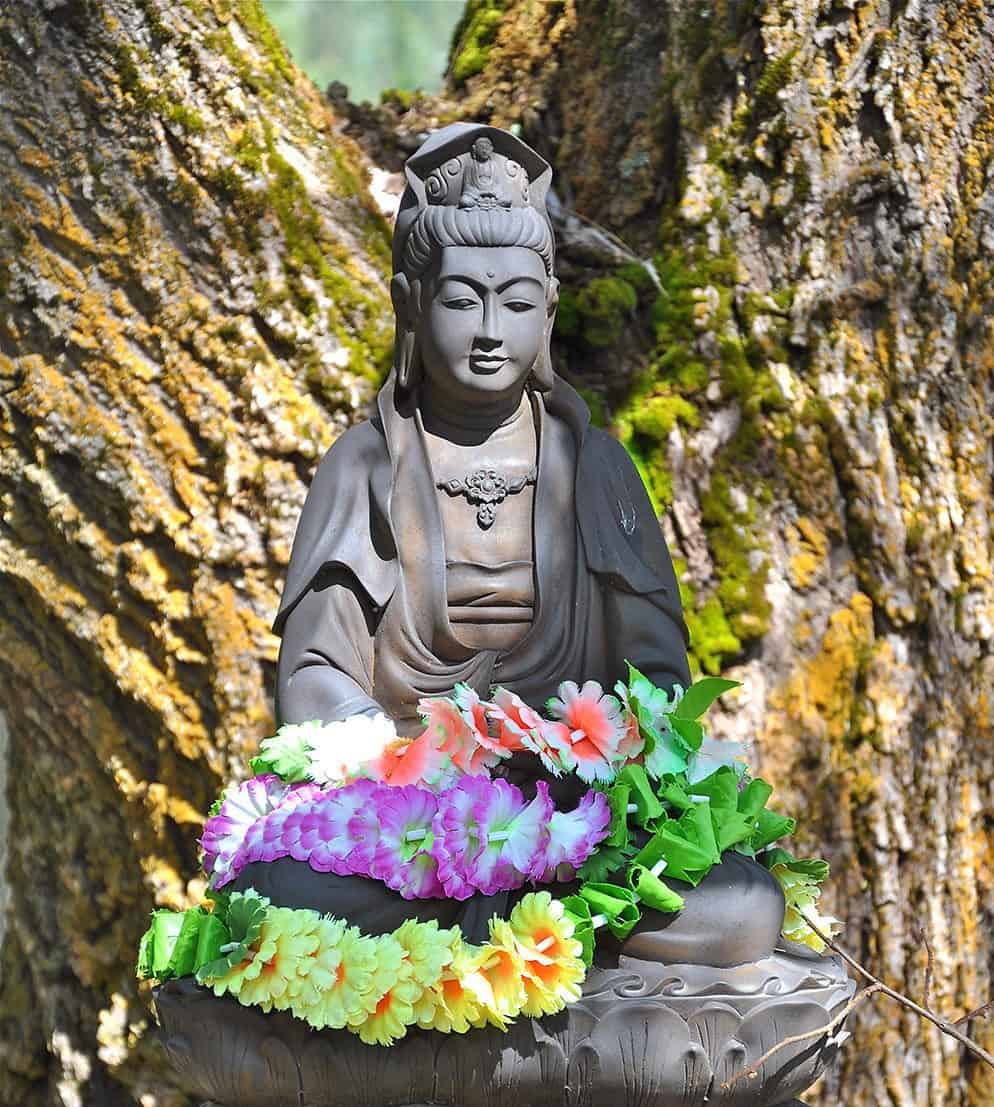When karma ripens
65 The Foundation of Buddhist Practice
Part of an ongoing series of teachings (retreat and Friday) based on the book The Foundation of Buddhist Practice, second volume in “The Library of Wisdom and Compassion” series by His Holiness the Dalai Lama and Venerable Thubten Chodron.
- Karma not done, accumulated and karma not done, not accumulated
- How results of an action are influenced by applying counterforces
- Factors that make an action bring result in this life, next life or subsequent lives
- Four pairs of actions that are most likely to ripen in this life
- Karma that becomes defunct due to lack of cooperative conditions
- Karma will not become extinct until ignorance is eradicated
- Four factors preventing a karma from ripening such as realm, time
- Productive, supportive, obstructive or supplanting karma
- Our experiences arise due to many causes and conditions
- Our present thoughts and actions affect which karmic seeds ripen
The Foundation of Buddhist Practice 65: When Karma Ripens (download)
Contemplation points
- Why is it important to contemplate karma and its effects?
- How has an awareness of karma helped you refrain from negativity? Even so, sometimes we act as if cause and effect doesn’t exist. Make some examples from you own life. Seeing that others in the world have the same afflictions as you do, and yet don’t have a belief in or understanding of karma, allow compassion to arise for them.
- The Levels of Yogic Deeds lists four pairs of actions that may ripen in the same life they are created. Think of actions you have done or have witnessed that would fall into these categories. What makes these particularly strong? What is the benefit of being aware of these?
- “By living wisely here and now, one can influence which karmic seeds in our midstreams will ripen.” How do the choices you make influence what karma seeds can ripen? Make some examples of this from your own life.
- Why is it possible to change our karmic experiences?
- “Contemplating karma and its effects helps us to see ourselves, our experiences, and our lives as dependent on a variety of factors: they arise and cease due to causes and conditions.” Spend some time with this. Why is this kind of contemplation helpful? What does it do for the mind? How does it benefit?
- Venerable Semkye said that our lives really come down to trying to create virtue in the midst of whatever karma is ripening. How might habituating this way of thinking change the way you interact with your internal and external world?
Venerable Thubten Chodron
Venerable Chodron emphasizes the practical application of Buddha’s teachings in our daily lives and is especially skilled at explaining them in ways easily understood and practiced by Westerners. She is well known for her warm, humorous, and lucid teachings. She was ordained as a Buddhist nun in 1977 by Kyabje Ling Rinpoche in Dharamsala, India, and in 1986 she received bhikshuni (full) ordination in Taiwan. Read her full bio.


